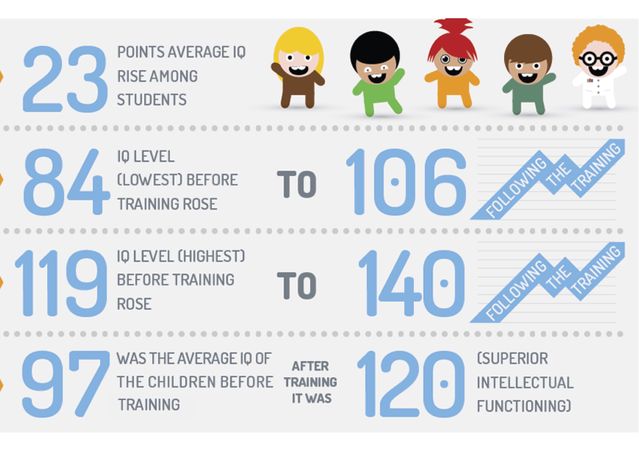A new scientific paper I produced along with Sarah Cassidy and other
colleagues, published in the journal Learning and Individual
Differences, shows that significant increases in general intelligence,
of 28 points on average, can be produced by undertaking online
relational skills training. Furthermore, significant improvements in
overall educational aptitude can be achieved by a few months of
practicing one's relational skills.
Bryan Roche
Source: Bryan Roche
In previous blogs, I have outlined the rationale behind this training
and argued that a Relational Frame Theory (RFT) approach to
intellectual development may hold the key to a functional approach to
brain training. That is, RFT claims to have identified some basic
building blocks of intellectual development, which center around the
ability to understand complex inter-relations among stimuli. For
example, understanding that if something is opposite to two other
things, then those two things must be the same as each other, involves a
relation skill. As another example, if one object is worth more than
another, the second one is worth less than the first. The idea that
these skills not only underlie intelligence, but constitute it, is core
to RFT, a modern behavioral approach, although it sits well with more
mainstream cognitive approaches.
While most of us are relatively proficient in basic relational
skills, we are actually quite deficient in solving more complex
relational problems. To address this deficiency, a form of online brain
training called SMART training (Strengthening mental abilities with
relational training) was developed by Relational Frame Theory
researchers at Maynooth University.
The Cassidy et al. study is the second such study to be published by
the Maynooth University team to show that SMART training can increase
general intelligence as measured by standardized IQ tests, such as the
Wechsler Intelligence Scale for Children (WISC). This new study,
however, provides additional evidence that scholastic ability, as
measured by a gold standard aptitude test known as the Differential
Aptitude Test (DATs), also increases as a result of this very particular
form of intellectual skills training.
As documented in previous research, the IQ rises cannot be easily
accounted for by practice at the IQ test, because the IQ test was
administered only twice, with a several month interval between
administrations. Furthermore, IQ rises due to practice are usually very
small compared to the rises reported in this latest study. Further
still, the training administered to the sample of 11-12 year old
children employed in Experiment 1 of this study, was dissimilar to an IQ
test. The same applies to the DATs aptitude test. This was administered
only twice, and the increases in scores observed for numerical and
verbal reasoning far outstripped the increases expected by practice at
the test itself. Once again, the online relational skills training did
not in any way teach the items on the DATs test.
Advertisement
This is the second SMART study to achieve what critics of “brain
training” treat as the benchmark for acceptable brain training; the
transfer of skills from the training to other tasks. In this regard the
Cassidy study provides more evidence that brain training can work to
enhance essential intellectual skills, at least if it focuses on
relational skills, or what RFT researchers call Arbitrarily Applicable
Relational Responding.
A common criticism of brain training is that while it may improve
some cognitive skills needed to complete the training, any benefits may
have no practical relevance to daily life. In the current study,
however, a sample of 30 14-15 year old children were tracked across
several months of online training, 2-3 times per week for 30-45 minutes.
Practice at relational skills, increased their numerical and verbal
reasoning abilities, as measured by the DATs (administered and scored by
independent third parties) by a significant degree. Together these
numerical indices are used by educators to assess a child’s overall
“educational aptitude”, which is the child’s ability to perform well in
school across the board. By finding a significant increase in scholastic
ability, the current study suggests that SMART relational skills
training can make a real and measurable difference to the educability of
a child.
While more evidence is always required when such promising results are reported by any new
Brain Training
method, the case is mounting that a relational frame theory approach to
intellectual development may indeed have identified some basic building
blocks of intelligence, once thought to be an unchangeable trait.



